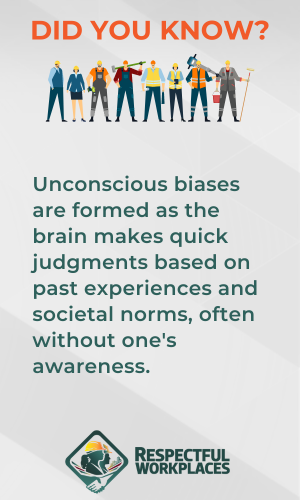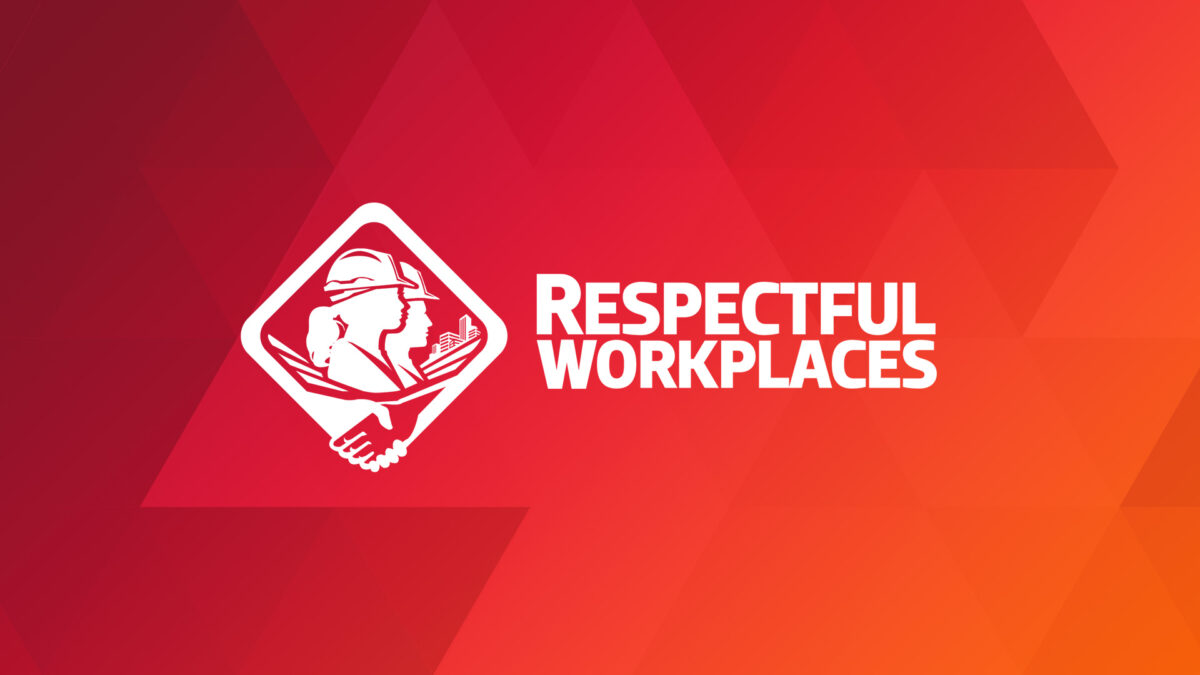The concept of unconscious bias is not a new one.
The theory was developed nearly 30 years ago, in 1995, by psychologists Mahzarin Banaji and Anthony Greenwald and has become a common point of discussion in Canadian workplaces and society as a whole.
But what is unconscious bias really, and how does it impact our daily interactions?

The science behind bias helping to recognize our blind spots
The human brain is a complex organ, adept at processing vast amounts of information rapidly. However, this efficiency comes with a caveat: the development of biases. Unconscious biases are formed as the brain makes quick judgments based on past experiences and societal norms, often without one’s awareness. Research indicates that recognizing and managing these biases is crucial for fostering inclusive environments. Studies, such as those conducted by the University of Toronto, highlight the brain’s role in shaping perceptions and the importance of conscious efforts to mitigate bias. Furthermore, initiatives like Project Implicit by Harvard University offer tools for individuals to explore their own biases, providing a foundation for personal and professional growth in recognizing and overcoming these mental shortcuts. Understanding the science behind bias is fascinating and essential for creating more equitable and inclusive societies.
Blind spots, the biases and prejudices individuals unknowingly hold, can significantly hinder the progress toward equity and inclusion within any setting. Constructive criticism from peers and mentors provides invaluable insights into one’s behaviour and thought patterns, often revealing biases that were previously unrecognized. This feedback loop is essential for personal growth and bias mitigation. However, one of the greatest challenges lies in the willingness to acknowledge these biases exist. It requires a level of humility and openness that is not always easy to muster. The discomfort of confronting one’s own prejudices can be a significant barrier. Yet, overcoming this discomfort is crucial for personal development and for fostering an inclusive culture. Through self-awareness tools, embracing feedback, and having a willingness to be uncomfortable, individuals can begin to address their blind spots, paving the way for more inclusive workplaces.
Types of bias we encounter
In the exploration of biases, it becomes evident that these mental and social shortcuts significantly influence perceptions and decisions. Cognitive biases, for instance, represent a deviation from rational judgement, where individuals often rely on subjective judgement rather than objective analysis. The Canadian Psychological Association provides a comprehensive overview of cognitive biases, highlighting their impact on everyday decision-making.
Social biases, on the other hand, are deeply rooted in the societal and cultural fabric, influencing attitudes towards people based on stereotypes rather than individual merit. These biases can manifest in various forms, including prejudice and discrimination, subtly shaping community interactions and opportunities. The Canadian Human Rights Commission discusses the implications of social biases and the importance of fostering inclusivity.
Confirmation bias, a subset of cognitive bias, further complicates the landscape by leading individuals to favour information that confirms their preexisting beliefs or hypotheses. This bias can significantly hinder the ability to think critically and evaluate information objectively. A study highlighted by the University of Toronto examines the prevalence of confirmation bias in information processing and decision-making, underscoring the challenge it poses in achieving unbiased perspectives.
Strategies to overcome bias
Overcoming bias requires a deliberate and concerted effort to think critically, embrace diversity, and practice mindfulness. These strategies contribute to personal growth and pave the way for creating more inclusive and equitable spaces in society. Implementing change, both personally and professionally, necessitates a conscious effort to address and overcome bias. Education plays a crucial role in personal and professional growth.
Critical thinking and the practice of questioning assumptions also serve as foundational steps in recognizing and dismantling biases. By actively engaging in critical analysis, one can uncover the underlying prejudices that often go unnoticed. Diversifying perspectives is crucial in enriching one’s understanding and fostering a more inclusive environment. This involves seeking out and valuing the opinions and experiences of individuals from different backgrounds and cultures. Mindfulness and other reflective practices have shown promise in reducing snap judgments and implicit biases. A study conducted by researchers at McGill University indicates that mindfulness techniques can help individuals become more aware of their prejudicial thoughts and feelings, providing an opportunity to address and rectify them before they influence behaviour. By cultivating a habit of mindfulness, individuals can develop a greater capacity for empathy and understanding, further contributing to the reduction of bias.
In the journey towards awareness and inclusion, recognizing and overcoming bias is not a one-time achievement but a continuous process. It demands ongoing vigilance and a commitment to personal development. The path to an inclusive society is paved with the efforts of those who strive to understand and dismantle the structures and attitudes that underpin discrimination.
Michael Bach is an author and speaker, a thought leader in inclusion, diversity, equity, and accessibility, and an IDEA consultant to BuildForce Canada.

Respectful and Inclusive Workplaces
